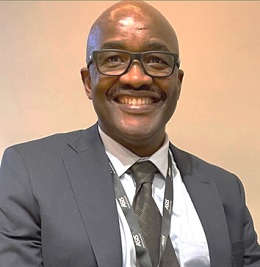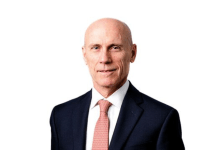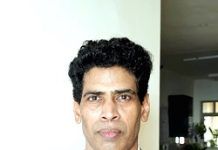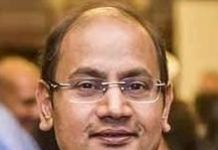SECURITY TODAY got an exclusive opportunity to have a one-to-one conversation with Malcolm C. Smith, CPP, President (2022) of ASIS International’s Global Board of Directors, and its first president ever from Africa. ASIS International is the world’s preeminent body of security professionals having over 34,000 members in approximately 250 Chapters, representing 158 countries.. We bring you the excerpts from the interview.
Hi Malcolm, where are you based, and what do you do for a living?
I am based in Qatar and I work for the Qatar Museums (QM) Authority as Head of Risk Management & Electronic Security Support.
Tell us about your early years, how you started?
I was 12 years old in 1978, in Johannesburg, when I started off as an entrepreneur, selling pies made by a coloured aunty for a small profit to moviegoers at the local cinema. Later I started buying apples and peanuts and started selling those at bigger profits. There was street crime, with gangs ruling over different areas, and I had to pass through those unsafe areas, to reach back home safely every night. One learnt to fend for oneself at an early age, and for me security started at that time, as I used to navigate the streets looking out for potential danger and risks and building strategies to circumvent them. I continued doing this business for 5 years till I turned seventeen years old. In all those 5 years I was never assaulted or robbed even once!
With the money that I made, I paid for my own schooling and I purchased a bike to take me into the town. It was on one of those trips that I saw a military truck and was awestruck with the soldier’s uniform. It was in that inspirational moment that I decided to join the armed forces, to begin my career, in that sense, with public security.
How did you transit into private security?
I decided to leave the army in 2001 after putting in 18 years of service. However, before leaving I was planning my career, so I trained to be a commercial diver and a paramedic, still unsure of what profession I actually wanted to pursue. I also finished a three year diploma course in security and risk management. So when I finally left the army, I landed a job with the private security firm G4S in Nigeria as a project manager, overseeing their manned guarding business in an area. Actually, in the true sense, this was when I formally entered the private security industry. I learnt the nuances of how to do business, keeping customers happy, and delivering quality security services.
And corporate security?
Well, it was on one of the trips that I made back home that I was approached by a law enforcement agency and got an opportunity to serve in a special unit called ‘Scorpions’ that operated on the lines of the FBI and Scotland Yard. I joined them and worked as an undercover agent conducting high risk investigations in pursuit of criminals for a couple of years as a unit head. I then got recruited as a private security contractor for an assignment in Iraq by a UK based organisation. I worked in Iraq as a security consultant for two years, seeing a lot of strife and people dying. So at the behest of my wife I decided to quit this job and return home in 2005 to join a multinational insurance company as their national corporate security manager. I actually started my corporate security career then. I have been climbing the corporate security ladder up to global head of security, across enterprises and regions for over 20 years now. I currently work as head of risk management for the Qatar Museum Authority in Doha, Qatar.
We understand that you’ve travelled on a busy corporate security career path with extensive international exposure. Tell us something more about that.
I’ve lived and worked in Jordan, Iraq, Nigeria & Qatar. In regional & global roles, travelled on business to more than 50 countries including: Uzbekistan, UAE, Netherlands, UK, Sudan, Ghana, Kenya, Rwanda, Mauritius, China, Singapore, USA, Australia, etc. In countries of responsibility I have conducted Market entries; M&A activity; Country Risk Assessments; Done Strategic Planning; Liaised with regulators; Delivered training, Developed Country Crisis plans, etc. Also, connected to a global network & liaised with intelligence communities.
When and how did you get involved with ASIS, and how has the journey been?
I recall, the first question a recruitment consultant in Iraq first asked me was, if I knew ASIS, and if I was its member, and if I was certified?
Since 2004 I have been an ASIS member, and an ASIS volunteer leader since 2006. However, I think it was my CPP certification that helped me in getting my foot in the door as a corporate security practitioner. I volunteered to be a certification representative for ASIS, a role that I enjoyed very much as ‘training’ is close to my heart. From there I went on to become the chapter chairperson, ARVP, RVP, and then senior RVP for the African region
In terms of being a global volunteer leader, it started in 2012 when I got an invitation to join the international strategic planning committee of ASIS International. This invitation created inclusion, I was invited to contribute, and later, I was asked to consider joining the board, as the leadership felt that my inputs would make a difference from an Africa perspective. ASIS was thinking global, and it needed such voices around the table. So, since 2017, I have been sitting on the board, bringing that global—and also the African perspective to the table. I’m very proud of it.
How did you manage to keep to speed with the several board meetings and other engagements which must have emanated with this role?
We used to have at least three physical board meetings in a year – January – June, and then the one which coincided with GSX in September. I used to travel to the United States to attend these meetings. However there were a number of meetings concerning various committees which were held online, and which I had to attend. Luckily for me, my workday finished at 2:30 pm everyday, and factoring in the time difference between Qatar and the U.S., a majority of these meetings were fortunately held during the morning hours in the United States that meant early evening hours in Qatar. So, I was able to manage them.
How is ASIS evolving and what are the future plans?
As a result of Covid-19, the process of digital transformation which had already started before that got accelerated and we are now seeing platforms such as ASIS Connects really beginning to gain traction. One can gain access to over 34,000 security management professionals and their shared knowledge through various online discussions. Ask questions, share resources, and find answers when you need them most.
Subject Area Communities is another platform where one can find other security management professionals sharing similar interests connected via over 35 different and specific subject matter groups to share best practices, collaborate to create needed resources, and participate in online events.
Going forward, ASIS will continue to explore any avenue and pursue any initiative which imparts security education or improves its delivery to its members. That is why we have created six regions, which will have their own regional boards.
How has the industry evolved and how has the security function changed in the recent past?
Previously, physical security meant gates, guns and guards, however with the emergence of information technology and its convergence with physical security we now see positions where the CSOs also oversee physical, as well as logical security. I’ve also seen roles where physical security professionals are reporting into a CISO. The two are so blurred—cyber and physical security—that they have merged, and we are now taking the step to showcase that when we say ASIS is advancing the profession, it means advancing both.
What after this?
After my tenure as President of ASIS for the year 2022, I become the Chair of the Global Nominating Committee, which is a more relaxed role.








